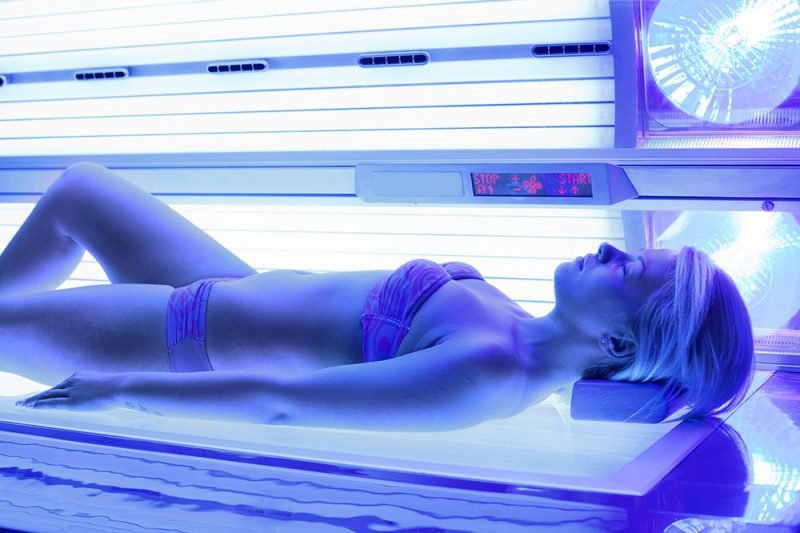Should Minors Be Able to Use Tanning Beds?

Shorts weather is here, and the idea of showing of pale winter skin may sound unappealing to many—especially teens who are hoping to don a bronzed body for spring break, prom and other rites of spring and summer. But even though it’s legal in most of Maryland for a teen to tan with a parent’s permission, think twice about letting yours visit a tanning salon.
New research shows that indoor tanning restrictions for the 18 & under crowd can reduce melanoma rates by 4.9%, prevent 6,735 deaths, and save over $342 million in healthcare costs.
There is overwhelming evidence showing that UV radiation from indoor tanning substantially increases risk of skin cancer, including melanoma, the deadliest form of skin cancer. In response, public health officials have ramped up efforts in recent years to discourage minors, who may not fully understand the dangers of tanning beds, from using tanning beds.
To date, 43 states limit indoor tanning for minors, with restrictions ranging from requiring a parent or guardian’s consent to a total ban on indoor tanning for 18 and under. These restrictions seem to be working. Indoor tanning among teens has dropped significantly—statistics show a more than 50% reduction in the number of high school students partaking in indoor tanning since 2009.
What is more, a new study indicates that such restrictions can save our skin in more ways than one. Published in the latest issue of the Journal of American Academy of Dermatology, this research projects that imposing indoor tanning restrictions on the 18 and under crowd can reduce melanoma rates by 4.9%, prevent 6,735 deaths, and save over $342 million in healthcare costs.
The only safe tan comes from a bottle
The bottom line: indoor UV tanning beds are dangerous. If you or your child want to get a tan, get it from a bottle or spray. Always apply broad-spectrum SPF to exposed skin before going outdoors, and instill this habit in your teen—the earlier a person practices healthy preventative skin care, the lower her risk of getting skin cancer becomes. An experienced medical skin care professional can recommend a high-quality sunscreen that feels light on the skin while offering maximum protection.
Concerns about your skin? See a board certified plastic surgeon
Also, if you notice any changes in your skin, see a qualified physician, such as a board certified plastic surgeon or dermatologist ASAP. With early detection, skin cancer is highly treatable. For patients in Maryland, skin cancer removal can be done here at Plastic Surgery Services. Dr. Henry Garazo is highly experienced in diagnosing and removing cancerous growths, and can often immediately perform a reconstruction to minimize any aesthetic impact of skin cancer removal without additional procedures. Please call or contact us online for more information.
Leave a Comment
